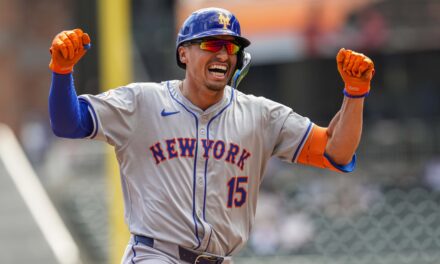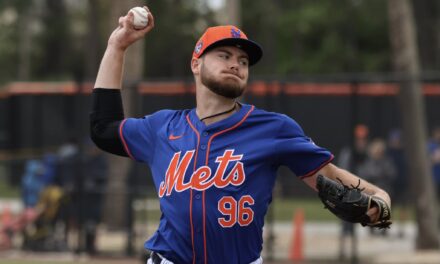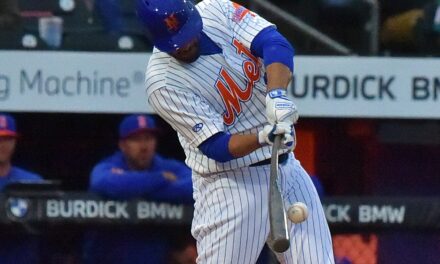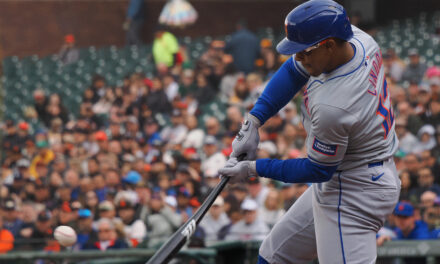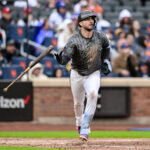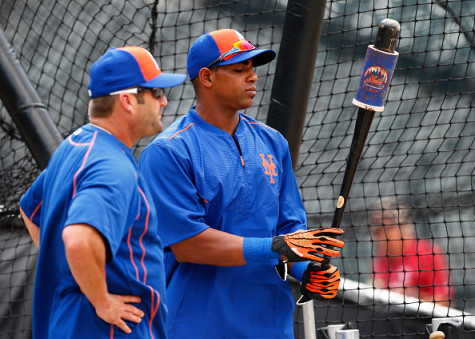
We are all well familiar by now with the frustration of watching this Mets’ offense. The home run numbers are extremely high, the runs scored extremely low. And, oh, that ghastly average with runners in scoring position – worst in all of baseball. It has reached the point where one almost dreads seeing the bases loaded, knowing the woeful situational hitting that will immediately follow.
So who, if anyone, is to blame for this?
Well, we all know that when the manager’s job is secure, as it is with Terry Collins for the foreseeable future, the reflexive reaction is to speculate whether the hitting coach ought to be on the chopping block. It happened with the 1999 Mets, when Tom Robson was canned along with two other coaches in the throes of an eight game losing streak in June. And it happened again in 2014, when Dave Hudgens was fired in May.
So, let’s get this party started. Does Kevin Long deserve blame, or at least close scrutiny? Or cutting straight to the chase, should he be in danger of losing his job? Are 60 games enough to make such a determination?
Long ventured across town in 2015 after eight years with the evil empire, amidst fanfare usually reserved for a manager, and was hailed as an excellent hire. At a minimum, he seemed certain to help Curtis Granderson, who had flourished under his tutelage in the Bronx. In fact, many believed he was hired mostly to effect a reunion with Grandy, who had struggled in the first year of a large four year deal.
After a slow start, CG did in fact have an excellent season in ‘15, fueled by a .364 OBP out of the leadoff spot. And we all know the offense exploded once the calendar turned to August. But what about the first four months of last season, and the first two and a half of this season? And how much of the problem can we legitimately blame on injuries?
A hitting coach can not make a bad hitter good, and, hopefully, can not make a good hitter bad, though many such coaches have tinkered excessively with natural swings, and others have preached an essentially one-size-fits-all approach at the plate, most famously Charlie Lau and Walt Hriniak.
Long claims not to have a singular approach, but rather to work with the inherent strengths – and minimize the weaknesses – of individual hitters. This means it is more difficult to assign specific credit or blame for the rise or fall of any specific player, except when the hitter publicly acknowledges the role of the hitting coach. And it is extremely difficult to quantify how he might help hitters mentally.
At the same time, one would expect a coach like Long to spend more time with younger players, given that they are both inexperienced and, at least theoretically, more malleable, than veterans. So what then to make of the rapid descent of Michael Conforto since the calendar turned to May? Has Long tried to intervene in the rookie’s free fall, or waited for Conforto to seek him out? Hard to know, really.
But the issue on the table right now is not so much the struggles of any individual player, but rather the team as a whole. The current rare and toxic mix of many homers and few runs will continue to lead to frustration, and players pressing, trying too hard to be the one to turn around this miserable situational hitting.
No one really knows how much difference a hitting coach can make beyond the spark that occasionally is lit between the coach and a given hitter like Granderson. It’s essentially an abstract question. But this much we know: if the Mets’ offense continues as is for much longer, the question of who is likely to be thrown under the bus will soon turn from abstract to concrete for one Kevin Long.


